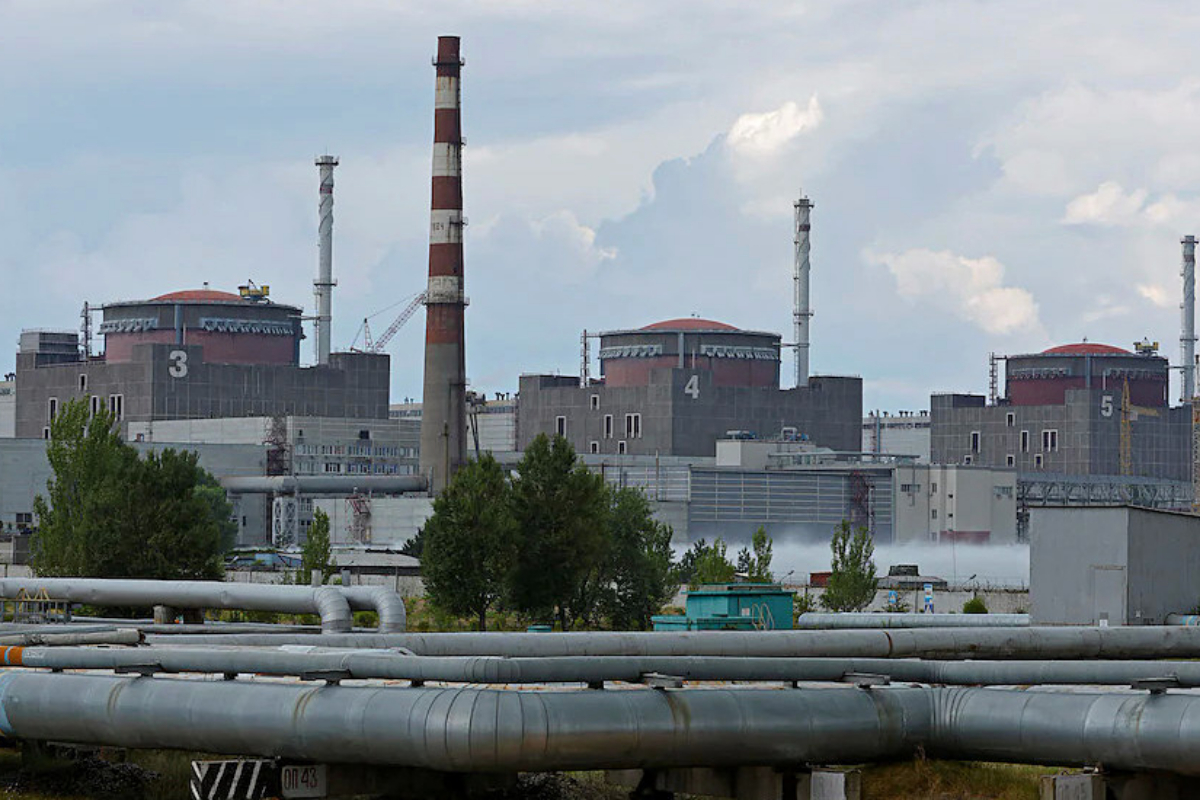- The EU is providing more than five million anti-radiation tablets to Ukraine.
- The Zaporizhzhia plant is under Russian occupation and has been attacked.
- Ukrainian employees say Russian troops have used it as a military base.
As fears grow of an accident at Europe’s largest nuclear power plant, the EU is providing more than five million anti-radiation tablets to Ukraine.
The Zaporizhzhia plant is under Russian occupation and has recently been attacked, with both sides blaming each other.
Officials are already distributing the pills, which can prevent the body from absorbing radioactive iodine.
Residents have been advised to take it only if a radiation leak has been confirmed.
So far, only people living within 50 kilometres (30 miles) of the power plant have been offered potassium iodide tablets, but the European Union has provided Ukraine with more than five million doses, allowing for much wider distribution.
Russia occupied Zaporizhzhia in southern Ukraine shortly after invading Ukraine in February. Ukrainian employees who continue to work at the plant have told the media that Russian troops have used it as a military base and that workers are effectively being held at gunpoint.
While recent fighting in the area has caused some damage to the plant, no increase in radiation levels in the area has been recorded thus far.
Nonetheless, officials are concerned that further damage could result in a radiation leak that spreads over a large area.
For several months, the UN’s nuclear agency has demanded access to the facility, and a team has arrived in Ukraine in the hope of finally being allowed to inspect the site in the coming days.
The EU said on Tuesday that the tablets were provided as a “preventative safety measure” to increase protection in the area surrounding the nuclear plant. Five million pills will come from the country’s emergency reserves, with another 500,000 coming from Austria.
On Monday, residents in one part of Zaporizhzhia city were given potassium iodide tablets, and 25,000 tablets were sent to Enerhodar, the city closest to the nuclear plant.
“In the event of an emergency, both adults and children will already be provided with iodide and will be able to protect themselves in time,” said Anatoliy Kurtyev from Zaporizhzhia city council.
He emphasized that residents should only take the drug if an accident occurs, not as a preventative measure.
Potassium iodide is used to prevent radioactive iodine from being absorbed by the thyroid gland, which is also known as iodine-131.
Even years after exposure, high levels of radioactive iodine can increase the risk of thyroid cancer in infants, children, and young people.
Potassium iodide, if taken at the right time and in the right dose, will be absorbed by the thyroid gland instead of the more dangerous iodine-131, reducing the associated health risks.
[embedpost slug=”the-horn-of-africa-receives-food-aid-from-ukraine/”]





















